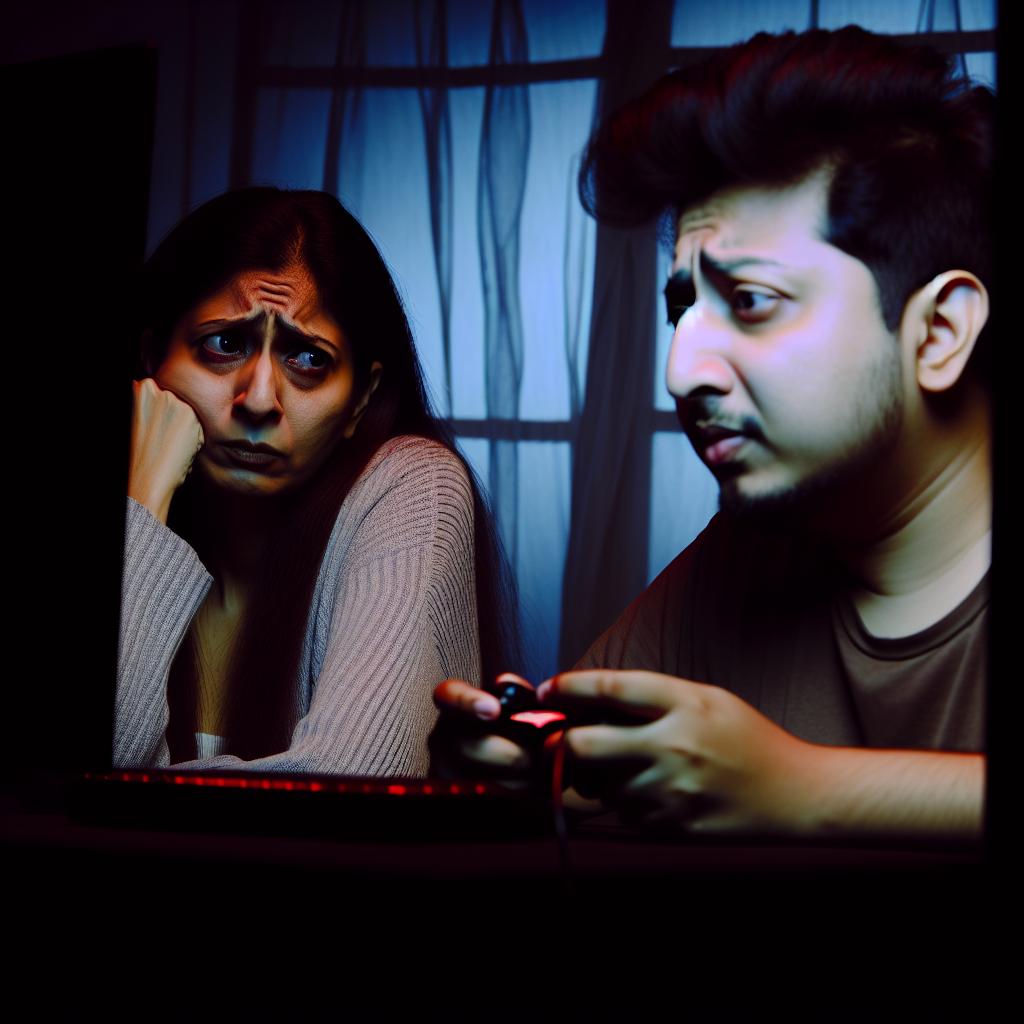Understanding Problem Gaming and Its Impact on Marriages
Marital issues resulting from problem gaming have emerged as a significant concern in recent years. As video games become more immersive and engaging, they attract a substantial portion of players who develop problematic gaming habits. These habits can strain marriages, as one partner may feel neglected or become increasingly frustrated with the time and attention their spouse dedicates to gaming.
Defining Problem Gaming
Problem gaming, often referred to as gaming addiction, occurs when an individual’s gaming habits begin to interfere with their daily life and responsibilities. It is characterized by a preoccupation with gaming, withdrawal symptoms when not playing, and continued use despite adverse consequences. While gaming can be a healthy source of entertainment, it becomes problematic when it affects personal relationships, work, or educational responsibilities.
The term “problem gaming” can be somewhat ambiguous. According to mental health professionals, it typically involves patterns of excessive or compulsive gaming that disrupt daily life and functioning. Understanding the myriad aspects of problem gaming is essential to address its impact effectively, especially in the context of personal relationships such as marriage.
Marital Strain
The impact of problem gaming on marriage can manifest in various ways:
Emotional Distance: When one partner prioritizes gaming over the relationship, it can create an emotional gap. The non-gaming partner may feel neglected, leading to feelings of isolation or resentment. An emotional disconnect can develop, where the gaming partner is perceived as unavailable for emotional support or interaction.
The loss of emotional connection often leads to diminished relationship satisfaction. In some cases, the non-gaming partner may struggle with feelings of invisibility within the marriage, leading to increased frustration and helplessness.
Communication Breakdown: Time spent gaming often comes at the expense of meaningful communication. When partners do not engage in regular, constructive dialogues, misunderstandings and conflicts may arise. The lack of communication can cultivate an environment where assumptions replace facts, escalating even minor disputes into significant issues.
Additionally, the gaming partner may withdraw further due to perceived nagging, creating a vicious cycle that intensifies communication problems. This cycle can be challenging to break without conscious effort and intention from both partners.
Financial Concerns: In some cases, problem gaming can also lead to financial strain. Spending significant amounts of money on gaming-related purchases, such as in-game microtransactions or gaming hardware, can cause tension if it affects the couple’s financial stability. Financial concerns can extend beyond initial costs, encompassing ongoing subscription fees and in-game purchases that accumulate over time.
It’s crucial to acknowledge that financial strain related to gaming isn’t solely about direct costs; it can also involve indirect consequences such as missed work opportunities or reduced productivity due to gaming-induced fatigue.
Identifying the Signs
Recognizing the signs of problem gaming is crucial for addressing the issue early. These signs include:
Increased Time Spent Gaming: Notable changes in the amount of time dedicated to gaming, especially if it starts to interfere with daily responsibilities. Monitoring the hours spent gaming against other responsibilities can help identify when gaming becomes excessive.
Neglect of Household Duties: The gaming partner may begin to exhibit neglect towards shared responsibilities, such as household chores or childcare. This neglect can strain the relationship by placing an unequal burden on the non-gaming partner.
Changes in Behavior: Emotional changes, such as increased irritability or withdrawal from social activities, may indicate problem gaming. Such behavioral shifts might be subtle initially but can exacerbate over time, making early detection important.
The nature of these signs can vary, depending on individual circumstances. Therefore, keeping an open line of communication about gaming habits and behaviors is crucial for timely identification and intervention.
Strategies for Improvement
Tackling the issue requires a combined effort from both partners:
Open Communication: Initiating a dialogue without judgment is essential. Discuss the impact of gaming on the relationship and express feelings honestly. Open communication involves active listening, ensuring both partners understand each other’s perspectives and feelings without blame.
Setting Boundaries: Agree on limits for gaming time and ensure that both partners have space for their hobbies and interests. Boundary-setting includes defining specific times for gaming and non-gaming activities, creating a balanced lifestyle conducive to mutual contentment.
Seeking Professional Help: Therapy or counseling can provide guidance and strategies to manage problem gaming. Couples therapy may also help strengthen the relationship by addressing broader relational dynamics impacted by gaming.
Incorporating these strategies requires commitment and patience. However, consistent effort can lead to improved outcomes, enhancing both individual and marital satisfaction.
Final Thoughts
Addressing problem gaming in a marriage requires patience and mutual understanding. By acknowledging the impact of excessive gaming and actively working towards a solution, couples can mitigate the negative effects on their relationship. Recognizing that change won’t occur overnight is important; it’s an evolving process that necessitates perseverance and dedication.
For further insights on managing problem gaming within relationships, consider exploring resources like the National Council on Problem Gambling or Game Quitters for support and strategies. These platforms offer valuable resources and communities for individuals and couples seeking assistance, providing educational materials, personal stories, and expert advice to navigate the complexities of problem gaming.

